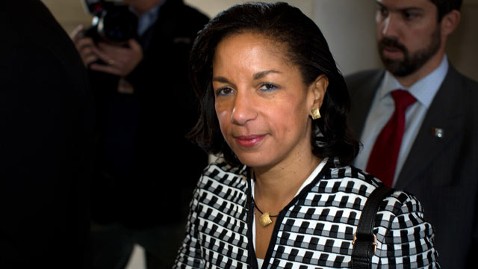Twenty children died today when a heavily armed man invaded a Newtown, Conn., elementary school and sprayed staff and students with bullets.
The gunman, identified as Adam Lanza, 20, was found dead in the school.
Lt. Paul Vance said 18 children died in the school and two more died later in a hospital. Six adults were also slain, bringing the total to 26.
In addition to the casualties at the school, Lanza's mother Nancy Lanza was killed in her home, federal and state sources told ABC News.
According to sources, Lanza shot his mother in the face, then left his house armed with at least two semi automatic handguns, a Glock and a Sig Sauer, and a semi automatic rifle. He was also wearing a bullet proof vest.
Lanza drove to Sandy Hook Elementary School and continued his rampage, killing 26 people, authorities said. He was found dead at the school. It appears that he died from what is believed to be a self inflicted gunshot wound. The rifle was found in his car.
In the early confusion surrounding the investigation, federal sources initially identified the suspect as Adam's older brother Ryan Lanza, 24. He is being questioned by police.
LIVE UPDATES: Newtown, Conn., School Shooting
"Evil visited this community today," Gov. Dan Malloy said at a news conference this evening.
First grade teacher Kaitlin Roig, 29, locked her 14 students in a class bathroom and listened to "tons of shooting" until police came to help.
Connecticut Elementary School Shooting: 'Several Fatalities' Watch Video
Connecticut Shooting: 27 Dead at Sandy Hook Elementary School Watch Video
Connecticut School Shooting: White House Response Watch Video
"It was horrific," Roig said. "I thought we were going to die."
She said that the terrified kids were saying, "I just want Christmas…I don't want to die. I just want to have Christmas."
A tearful President Obama said there's "not a parent in America who doesn't feel the overwhelming grief that I do."
The president had to pause to compose himself after saying these were "beautiful little kids between the ages of 5 and 10." As he continued with his statement, Obama wiped away tears from each eye.
He has ordered flags flown as half staff.
CLICK HERE for more photos from the scene.
The alert at the school ended when Vance announced, "The shooter is deceased inside the building. The public is not in danger."
The massacre prompted the town of Newtown to lock down all its schools and draw SWAT teams to the school, authorities said today. Authorities initially believed that there were two gunmen and were searching cars around the school, but authorities do not appear to be looking for another gunman.
It is the second worst mass shooting in U.S. history, exceeded only by the Virginia Tech shooting in 2007 when 32 were killed before the shooter turned the gun on himself. Today's carnage exceeds the 1999 Columbine High School shooting in which 13 died and 24 were injured.
The Newtown shooting comes three days after masked gunman Jacob Roberts opened fire in a busy Oregon mall, killing two before turning the gun on himself.
Today's shooting occurred at the Sandy Hook Elementary School, which includes 450 students in grades K-4. The town is located about 12 miles east of Danbury.
State Police received the first 911 call at 9:41 a.m. and immediately began sending emergency units from the western part of the state. Initial 911 calls stated that multiple students were trapped in a classroom, possibly with a gunman, according to a Connecticut State Police source.
Lt. Paul Vance said that on-duty and off-duty officers swarmed to the school and quickly checked "every door, every crack, every crevice" in the building looking for the gunman and evacuating children.
A photo from the scene shows a line of distressed children being led out of the school.
Three patients have been taken to Danbury Hospital, which is also on lockdown, according to the hospital's Facebook page.













